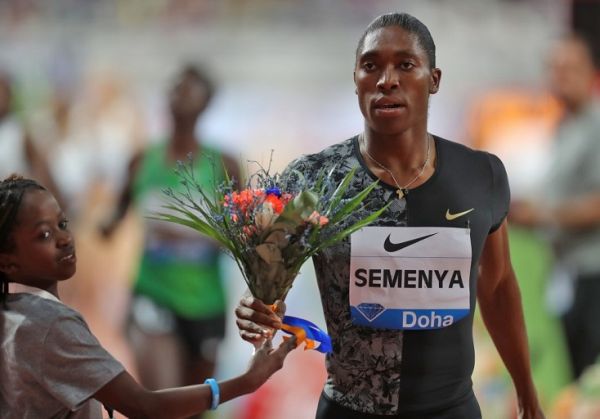Athletics World Body Introduces New Transgender Rules
16th October 2019
Under the new eligibility rules announced this week, transgender athletes are no longer required to be recognised by law in their new gender but only need to provide a "signed declaration" that they identify as female

- Female transgender athletes must lower their testosterone levels by half under new regulations introduced by the IAAF
- Athletes must maintain their testosterone levels below the five-nanomole limit to keep their eligibility to compete in the female category
LAUSANNE, Switzerland-
Female transgender athletes must lower their testosterone levels by half under
new regulations introduced by the IAAF, bringing the rules into line with those
for hyperandrogenous competitors such as Caster Semenya.
Under the new eligibility rules announced this week,
transgender athletes are no longer required to be recognised by law in their
new gender but only need to provide a "signed declaration" that they
identify as female.
The International Association of Athletics Federations
(IAAF) Council, which met in Doha, approved rules that require the
concentration of testosterone in a female transgender athlete to be less than
five nanomoles per litre continuously for a period of at least 12 months prior
to being declared eligible.
The previous limit was 10 nanomoles.
Athletes must maintain their testosterone levels below the
five-nanomole limit to keep their eligibility to compete in the female
category.
"Under the new regulations a transgender female athlete
is no longer required to be recognised by law in her new gender but should
provide a signed declaration that her gender identity is female," an IAAF
statement said.
"She must demonstrate to the satisfaction of the expert
panel that the concentration of testosterone in her serum has been less than
5nmol/L continuously for a period of at least 12 months prior to being declared
eligible, and must keep her serum testosterone concentration below that level
to maintain her eligibility to compete in the female category."
Similar rules apply to athletes with differences of sexual
development (DSD), or hyperandrogenism, such as Semenya, South Africa's double
Olympic 800 metres champion who is currently ineligible to compete and was
ruled out of this year's world championships.
Semenya is taking legal action to try to reverse the current
IAAF ruling.
